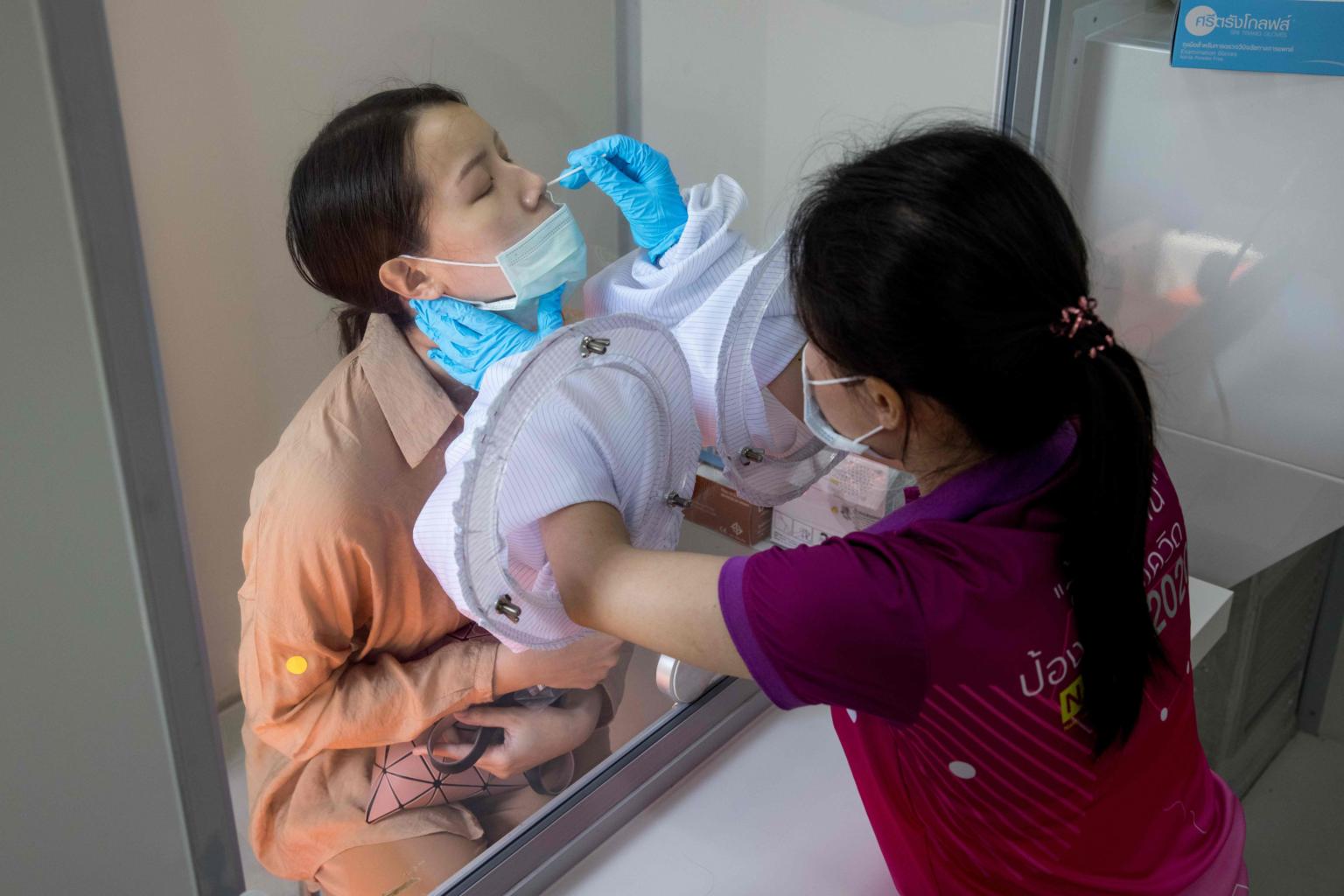Thailand aims to inoculate at least half the population against Covid-19 in 2021
Sign up now: Get ST's newsletters delivered to your inbox

Thailand is battling its biggest wave of coronavirus infections since the pandemic began.
PHOTO: AFP
Follow topic:
BANGKOK (BLOOMBERG) - Thailand is set to begin inoculating its citizens against Covid-19 before the end of February, with the goal of vaccinating at least 33 million people, half the nation's population, by the end of 2021.
The South-east Asian nation, battling its biggest wave of coronavirus infections since the pandemic began, will start with doses from Sinovac Biotech once the Thai Food and Drug Administration approves it, according to the Health Ministry.
By April, it plans to complete distribution of two million Sinovac shots to healthcare and front-line workers, people with underlying conditions and those over the age 60.
Prime Minister Prayut Chan-o-cha's government has approved purchase of a total of 63 million doses and the National Vaccine Institute is in talks with several manufacturers for additional supplies for delivery as early as this quarter.
The government expects the first batch of AstraZeneca vaccines - to be approved by the regulator this month - will be ready for distribution in May.
Thailand has closed schools and temporarily shut some businesses to contain a resurgence that's seen Covid-19 cases more than double to 10,834 in less than a month. The government is betting on wider availability of vaccine to stamp out the virus and pave for the reopening of its tourism industry, a lifeline for the economy.
Preventing outbreaks
"Once 50 per cent of the population has been vaccinated, we'll be able to control the infections and there won't be any large outbreaks in the country," Mr Nakorn Premsri, director of the vaccine institute, said in an interview.
"Once we've reached 70 per cent, we can be certain that there will be no outbreaks here. We may have one or two isolated cases, but the country can move forward."
Thailand may reach the herd immunity threshold only in 2022, given its slow vaccine rollout compared to higher-income countries with a similar population, like Britain.
The delay stemmed from the government's inability to order vaccines in advance during the research, when there was no guarantee of viable shots at the end of the trials, Mr Nakorn said.
The agreement with AstraZeneca and the University of Oxford, currently the nation's biggest vaccine supplier, will also allow local production through technology transfer, Mr Nakorn said.
Thailand will administer vaccines from more than 10,000 locations across the country free of charge for citizens. It will also allow private firms to import and sell those vaccines approved by the country's regulator to people who can afford to pay, according to officials.

